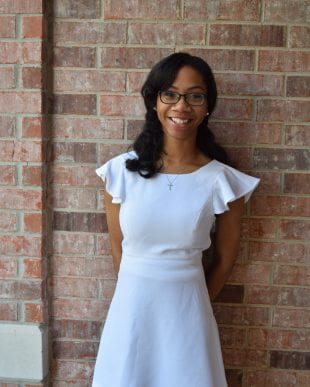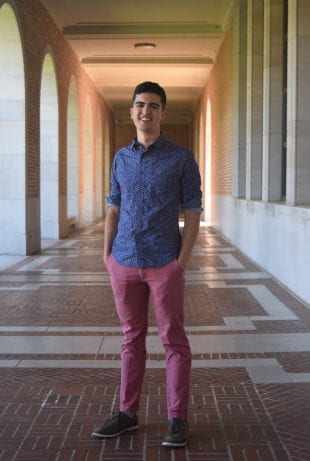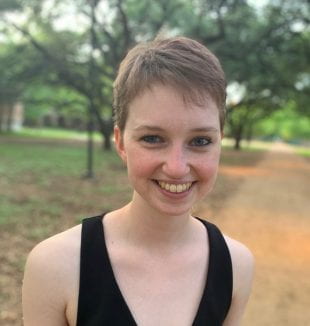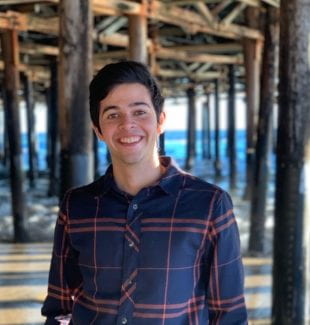Four Rice University graduates have received 2019 Fulbright grants to study, teach and conduct research in foreign countries.
The Fulbright Scholarship Program sponsors U.S. and foreign participants for exchanges in all areas of endeavor, including the sciences, business, academe, public service, government and the arts.
It was created after Senator J. William Fulbright introduced a bill in the United States Congress in 1945 that called for the use of surplus war property to fund the “promotion of international good will through the exchange of students in the fields of education, culture, and science.” President Harry Truman signed the bill into law in 1946.
The Fulbright U.S. Student Program is now the largest U.S. exchange program, awarding approximately 2,000 grants annually in all fields of study and operating in more than 140 countries worldwide.
Here are Rice’s Fulbright grant recipients and where they plan to travel during their year abroad.
Elizabeth Asonye ’19, who previously served as a public health and education intern in Masaya, Nicaragua, through a 2017 Loewenstern Fellowship, will be spending her Fulbright year in Mexico as an English teaching assistant.
The triple major from Pearland graduated with degrees in Latin American studies, kinesiology with a concentration in health sciences and Spanish and Portuguese. Asonye hopes to combine these areas of study with her personal interests in public health and civic service while she’s in Mexico, “volunteering with community health organizations to further know and engage with the host community in all aspects of their health and wellness,” she said.
“Ultimately, I envision myself working with and between the U.S. and Mexico, their citizens, and the two governments as a transnational ambassador and health educator,” Asonye said. “I am so grateful for the beginning and co-learning the Fulbright grant will provide.”
Mahdi Fariss ’19 served as both a McMurtry College senator and a staffer for Impact Rice after participating in the leadership development program his sophomore year. These opportunities will serve the San Antonio native well when he heads to Monnickendam, Netherlands, for his Fulbright year, where he’ll serve as an English teaching assistant at De Verwondering Primary School.
“When not in the classroom, I’ll be conducting research on the international classroom,” said Fariss, who majored in economics and spent the last year as an intern at the Arab American Institute. “I hope to better understand how Dutch teaching practices have contributed to producing the happiest students in the world.”
Amy Kuritzky ’19 spent a summer in Calca, Peru, researching nutrition, organic farming practices and food systems through a 2018 Loewenstern Fellowship. She’ll return to South America for her Fulbright year, conducting sociocultural anthropology research in Cuenca, Ecuador.
Holding degrees in environmental science and anthropology, Kuritzky said she’s interested in “different understandings of nutrition, such as the globalized standards which inform top-down public health campaigns but also how local residents understand the healthy body and healthy eating.” She also plans to explore the intersection between nutrition, environmental health and local farming practices.
“I will be working with a research center whose mission is to forge collaboration between ethnographic (qualitative) researchers and scientists, which fits with my interest in figuring out how to meaningfully put together qualitative social science and quantitative natural science research findings,” Kuritzky said.
Ricky Lozoya ’19 spent 2017 working in the lab of Christian Schaaf at the Jan and Dan Duncan Neurological Research Institute at Texas Children’s Hospital. There, the biochemistry and cell biology major conducted an experiment that helped unravel a mystery which had long surrounded a particular gene that’s been linked to behavioral disorders, speech disorders and other intellectual disabilities.
The El Paso native will be spending his Fulbright year at Heidelberg University in Germany. There, Lozoya said, he’ll be “characterizing the morphological and functional defects that duplication of a specific region in human DNA — the 15q13.3 region — produces in patient-derived neurons, since that particular region has been implicated in several neuropsychiatric diseases such as autism, schizophrenia and depression.”





